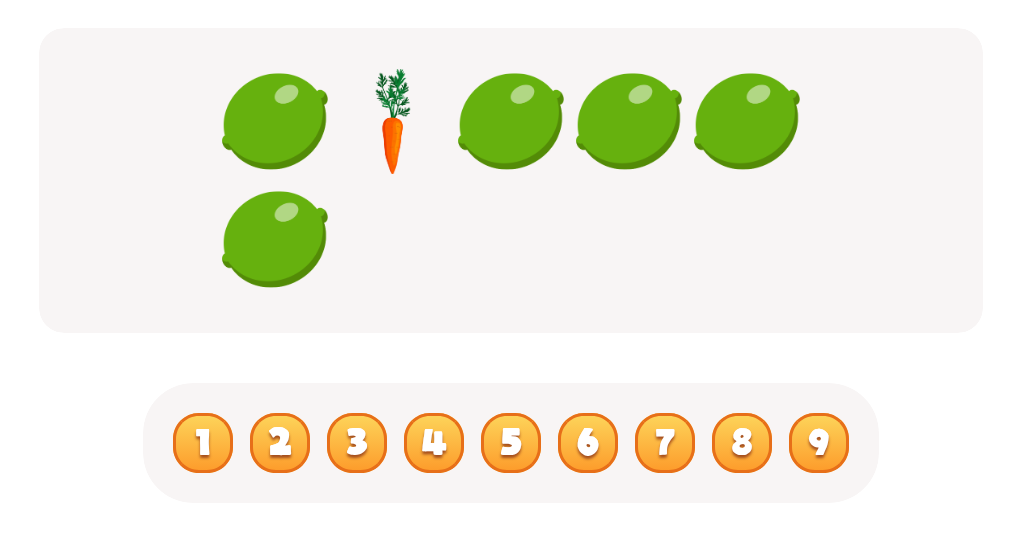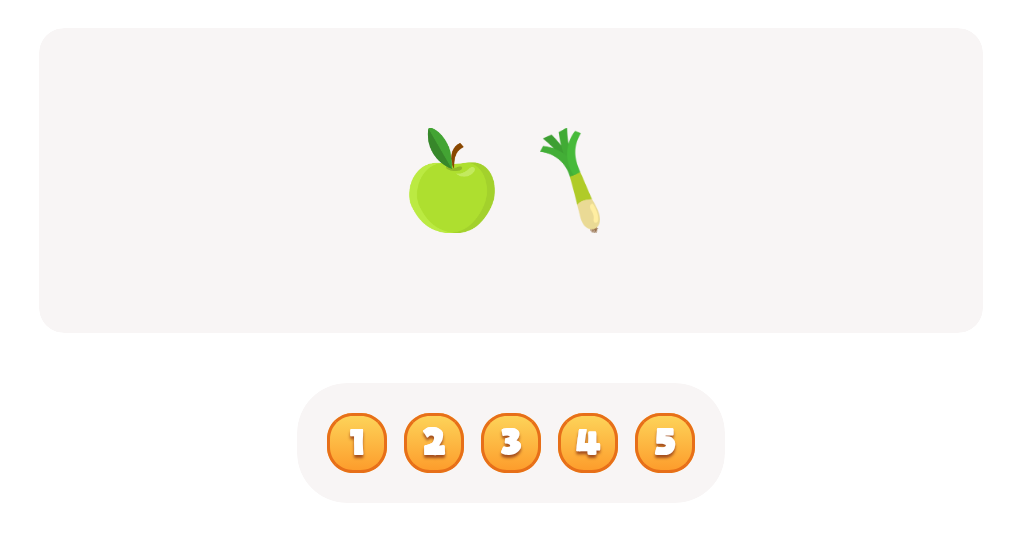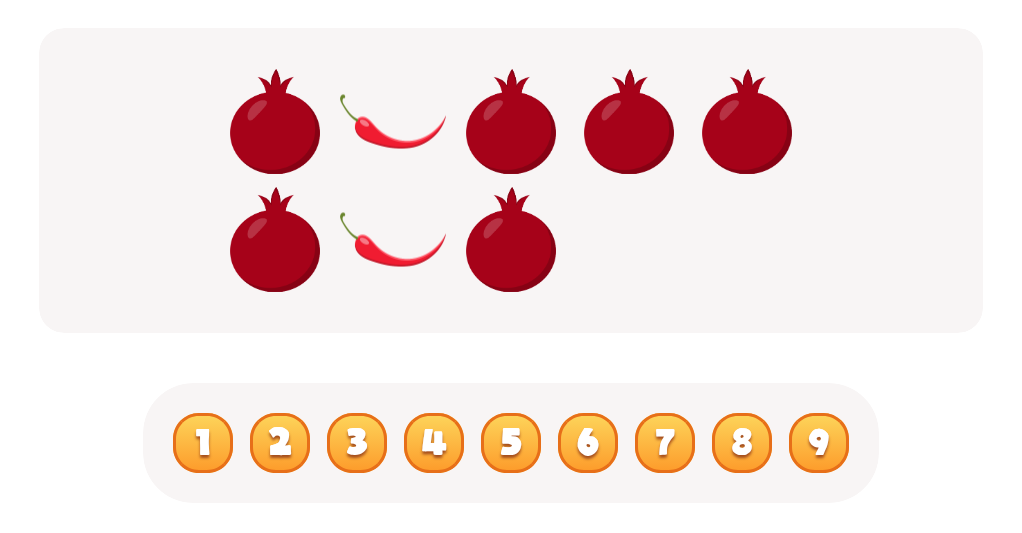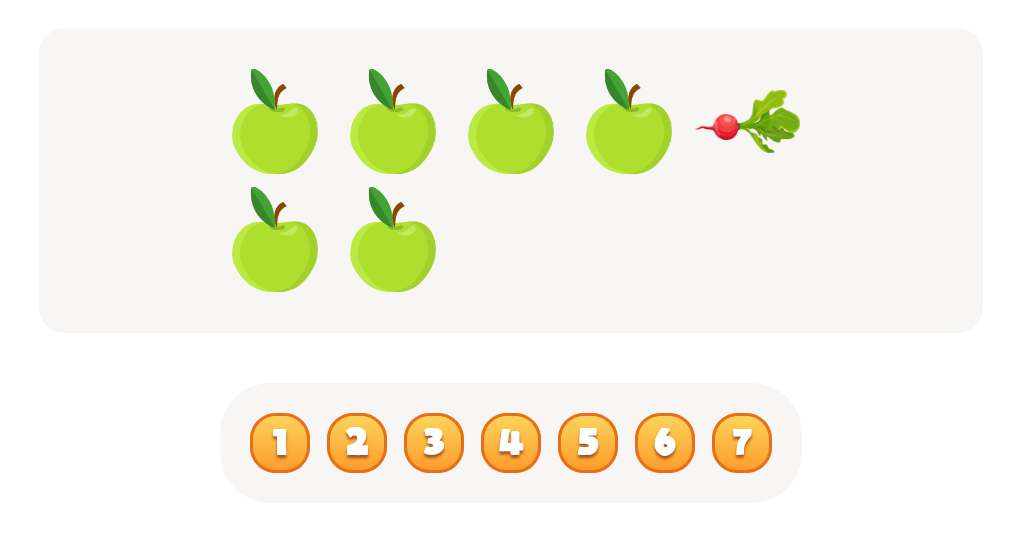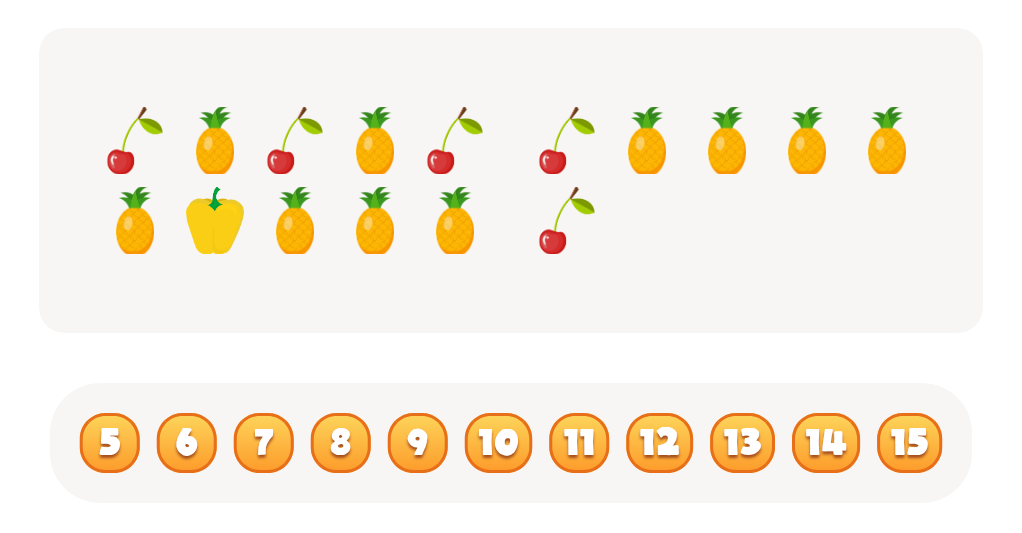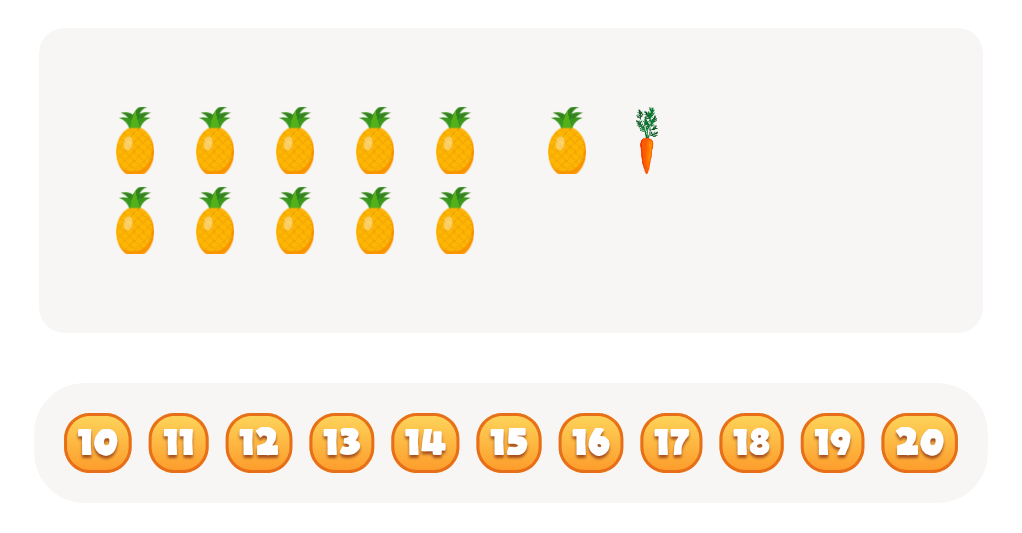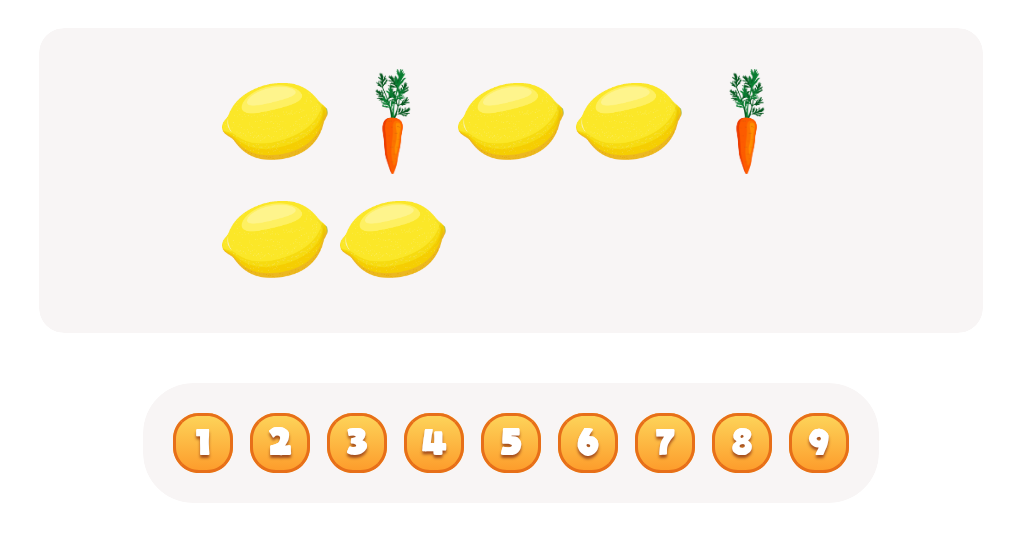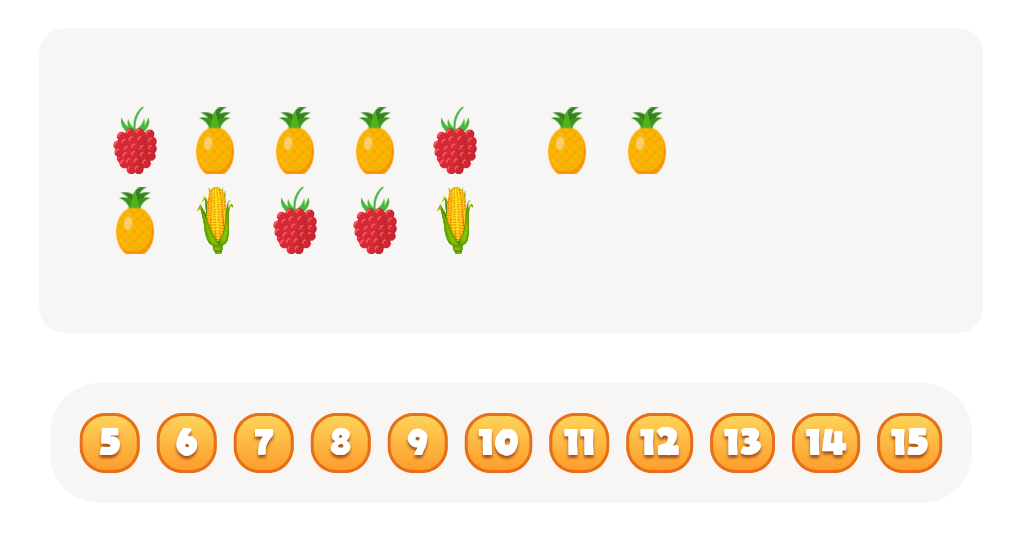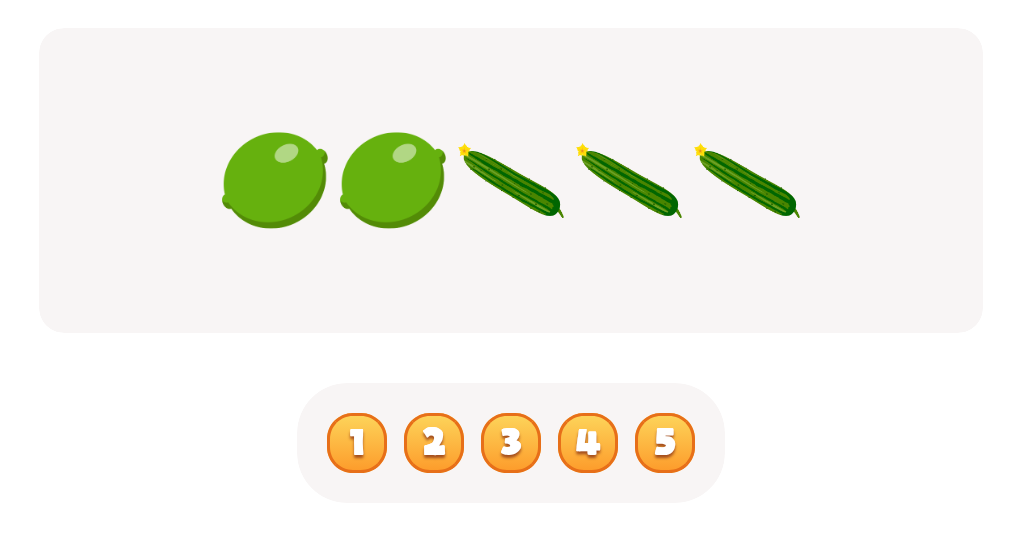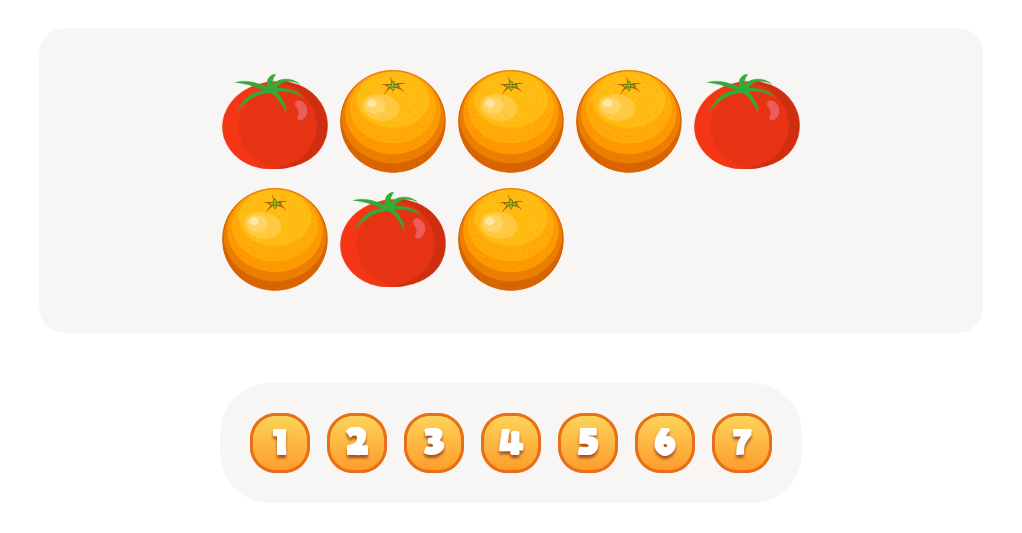Logical Reasoning Normal Plants and Animals Worksheets for Ages 6-8
5 filtered results
-
From - To
Welcome to our Logical Reasoning Worksheets for young learners ages 6-8, designed to ignite curiosity about the natural world of plants and animals! These engaging worksheets help children develop critical thinking and problem-solving skills as they explore relationships, categorize information, and make connections between different species and their environments. With fun illustrations and age-appropriate activities, your child will enhance their understanding of biodiversity while practicing essential reasoning skills. The worksheets are perfect for home or classroom use, making science learning both enjoyable and educational. Start nurturing your child’s logical reasoning abilities today with our captivating plant and animal themed resources!
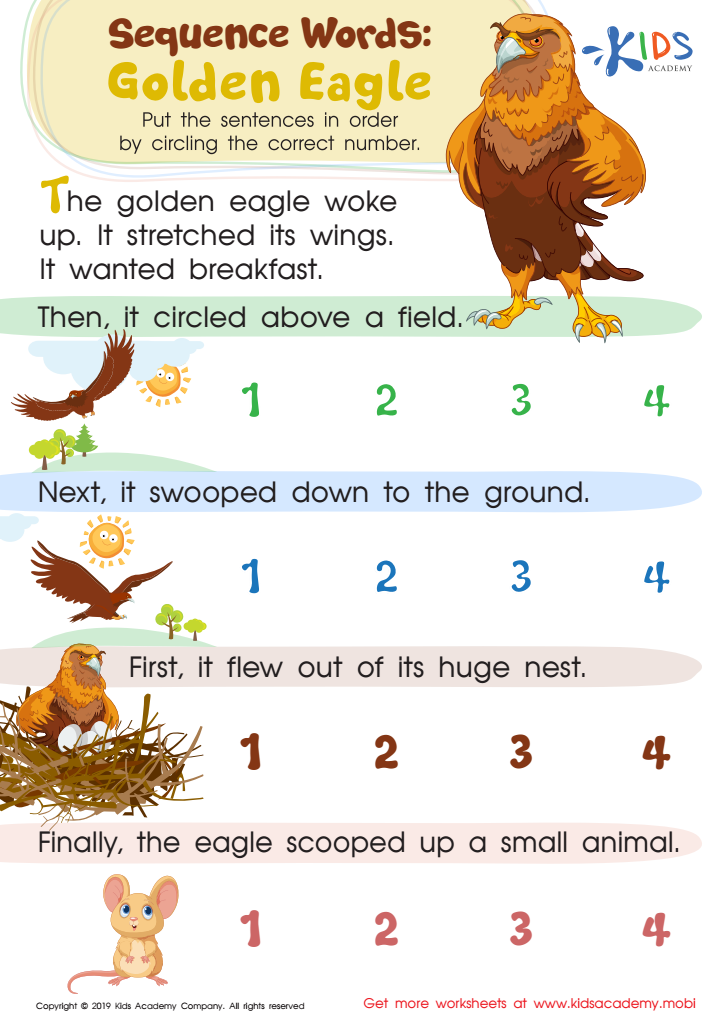

Sequence Word Eagle Worksheet


Sorting Animals in 3 Groups Worksheet
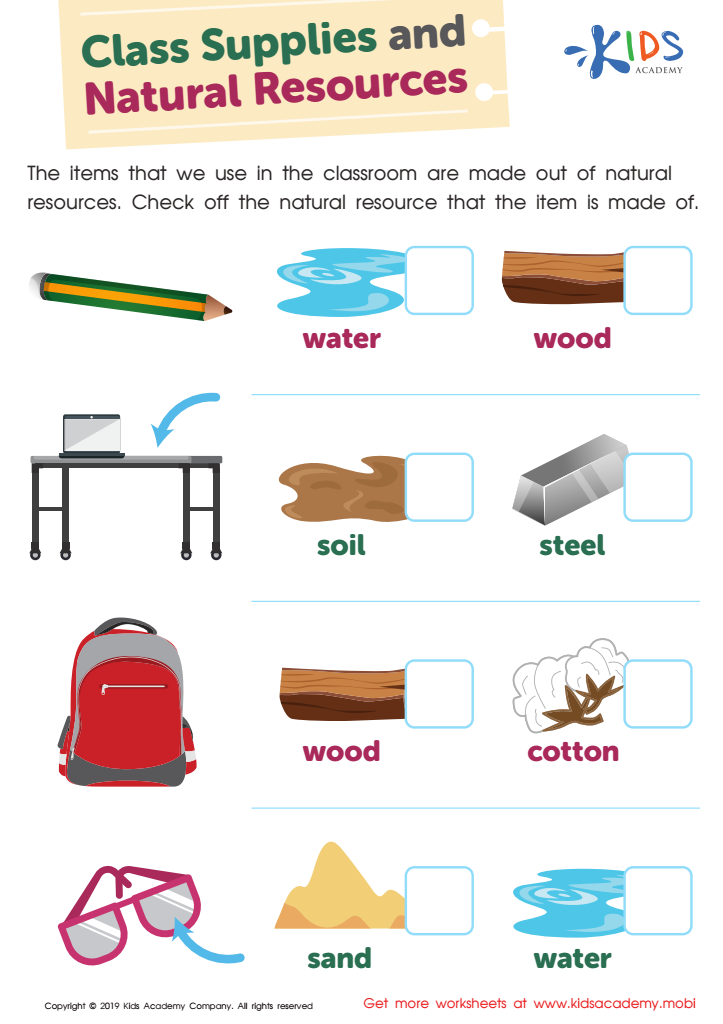

Class Supplies and Natural Resources Worksheet
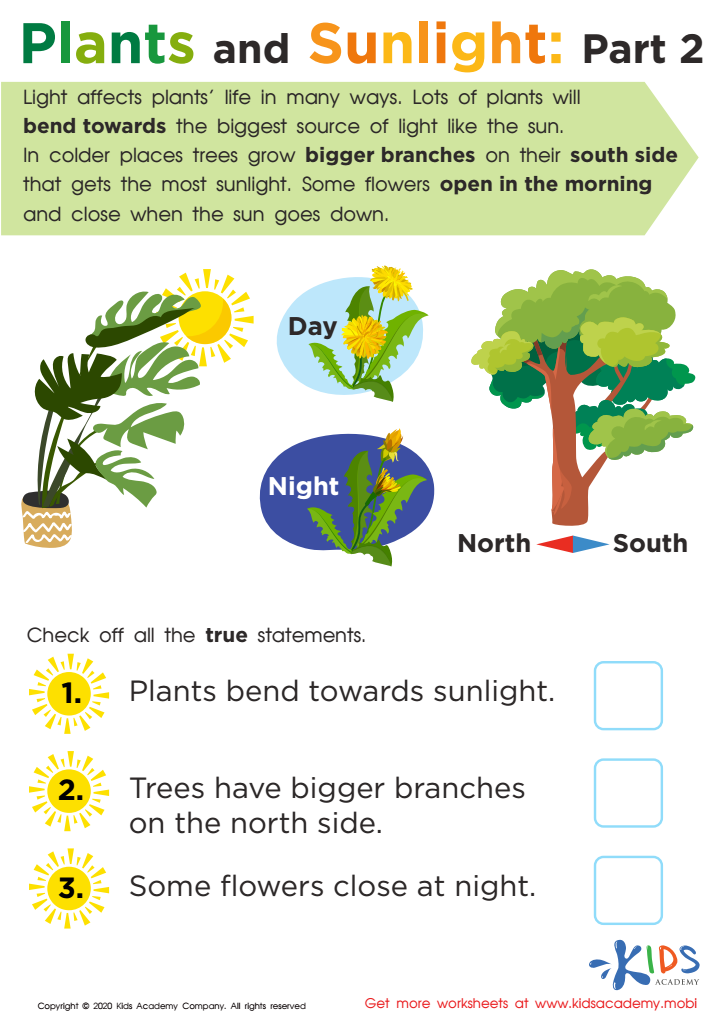

Plants and Sunlight: Part 2 Worksheet
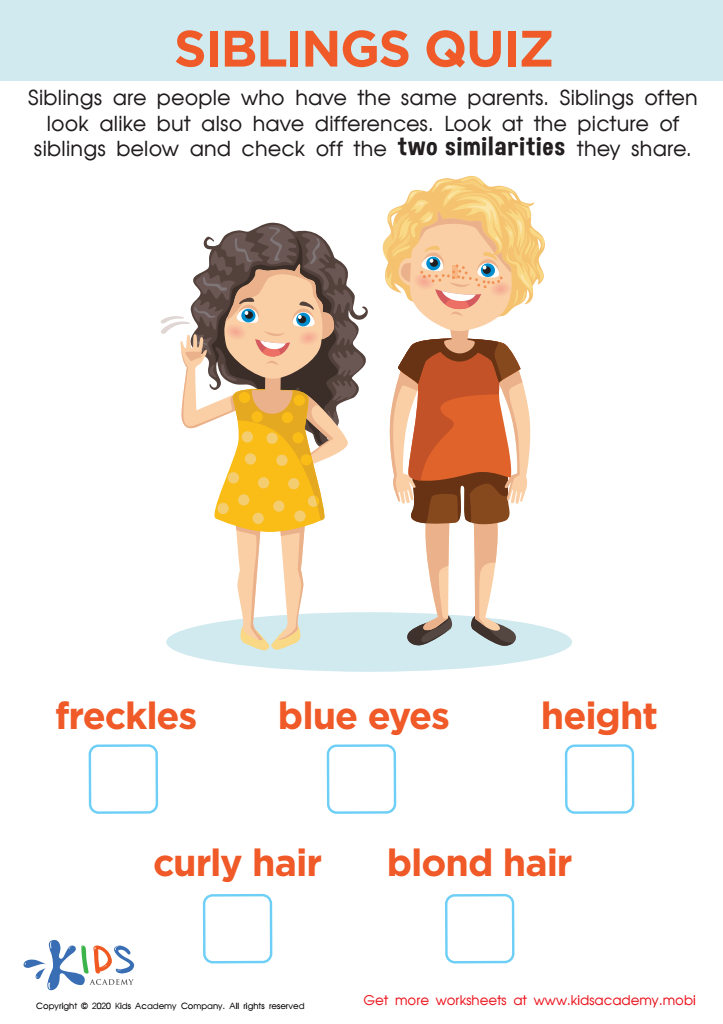

Siblings Quiz Worksheet
Understanding logical reasoning related to normal plants and animals is vital for children aged 6-8, as it lays the groundwork for critical thinking skills. Logical reasoning helps young learners draw connections between ideas, enhancing their ability to categorize and recognize patterns in the natural world. This skill is essential for developing scientific literacy and an appreciation for biodiversity, encouraging curiosity about ecosystems.
When parents and teachers nurture this cognitive ability, they foster a sense of inquiry that will benefit children long into the future. Engaging with natural concepts through logical reasoning encourages questions such as why plants have different structures, how animals adapt to their environment, and the interdependence of species. These inquiries promote patience, exploration, and analytical skills.
Additionally, integrating logical reasoning activities into learning about plants and animals can enhance vocabulary and comprehension abilities while connecting lessons to real-world scenarios. For example, discussing the lifecycle of frogs or the growth of a sunflower can lead to deeper discussions about environmental stewardship. Thus, helping children grasp these fundamental concepts equips them with the tools to become informed and responsible stewards of the planet, instilling values that will shape their attitudes towards nature throughout their lives.
 Assign to My Students
Assign to My Students
